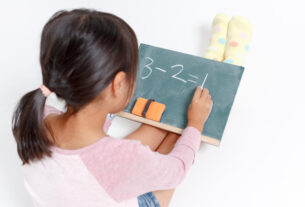Proper preparation for school
Your child crosses the threshold of school for the first time, you are happy and at the same time you are worried about how his school life will develop. You are even more worried about your child, his or her stress tolerance is compromised and tension is growing. The main task of parents is to help first-graders adapt to their new way of life.
HOW TO CHOOSE A SCHOOL
Schools are different, they have different systems of relations in children’s and teachers’ teams. Naturally, at primary school, 30% of a child’s success depends on the teacher. Beware of winners and inexperienced young teachers: the former will try to give everyone the maximum amount of knowledge, which is not always helpful, and the latter can only work with the “optimal” students.
When choosing a school, pay attention to the following details:
- Participation of the school in Olympiads and competitions. Achievements in such educational activities demonstrate the school’s focus on providing quality education. In addition, you can study the statistics of passing the USE.
- Attitude in pedagogical staff. Teachers should be oriented to the educational process. If in the corridor they are discussing students’ achievements, new methods of work, it is a good sign.
- Household conditions. The child spends most of the day at school, so it is important that he or she feels comfortable in it. Pay attention to the changing rooms, the condition of the desks, the presence of sofas in the hallway, etc.
- The way home. Statistics show that if a child spends about 1 hour on the road in one direction, it is enough for a maximum of 2 years, then he begins to be sick and lagging behind in the program.
- Availability of a preparatory class. The selection of students for a year is a sign of a good institution where they want to study. This kind of competition allows you to sift out children who can not keep up with the program, and families who do not want to take the director.

What a future first-grader should know and be able to do
According to the law, future first graders cannot be tested. However, the school administration bypasses this prohibition by arguing for a meaningless interview with the child to get to know him or her and fill the classroom.
The domestic education system assumes that the child must be in the first grade:
- know your name and your parents’, home address and phone number;
- know the name of your country and your capital;
- know popular plant and animal species, know how to distinguish berries from fruits and vegetables;
- know the colors;
- be able to navigate the time of day, know the sequence of days in a week, months in a year, etc.
- have knowledge of the basic rules of the road;
- name common occupations and sports;
- know the names of famous Russian writers, poets and scientists.
In the field of intellectual development, the child should:
- guess riddles, solve puzzles and simple problems;
- group items by attributes;
- supplement a number of missing items (or find an extra item in it);
- arrange the pictures in the right order, collect puzzles;
- find up to 10 differences in similar pictures;
- read small passages of poetry by heart;
- be able to retell a small story;
- be able to count to 10;
- know simple geometric figures;
- can read small sentences and be able to retell them;
- outline the drawing;
- hold the pen correctly in your hand.
Do I have to go to training centers?
The success of a child depends directly on his or her level of training. He should understand that learning is a mandatory process in his life, all the knowledge he will receive at the desk will be useful in his future life.
Ideally, preparation for school in specialized centers or directly on the basis of an educational institution should be based on the following scheme: diagnosis – identification of gaps in compulsory knowledge – elimination of these gaps. Practice shows that all future first-graders learn the same curriculum at the preparatory courses. Naturally, children with a good level of readiness do not benefit much from such lessons. The only advantage for them is socialization in the school community.https://argoprep.com/blog/cogat-grade-1/Parents should understand that the preparatory classes are no substitute for home schooling. It is the parents who should:
- Teach them to read. The availability of reading skills is one of the main conditions for successful learning. This can be done by using special picture cubes. This method is fruitful, because thanks to the image children remember letters faster.
- 2. Teach to write. Writing skills are the most difficult. You should not hurry to teach your child to write letters, first he must understand how to hold a pen. It is recommended to start writing by 5-6 years.
- Teach to count. It is important to teach the child not to list the sequence learned by heart, and be able to work with it: count in reverse order, insert the missing number in the number series, etc.
- Teach to draw and sculpt. It is necessary to teach the child to use paints that they do not merge into one uniform color. Such lessons have a beneficial effect on the development of the child.
Preparing for school is a responsible stage. At it, a special role is given not to special courses or kindergarten, but to parents. Knowing your child best, they can instill in his desire to learn, teach him to think and hear what the teacher is trying to convey. As for preparatory courses, they are only good at adapting your child to the school community. They are not necessary if parents pay due attention to preparing the future first-grader.


